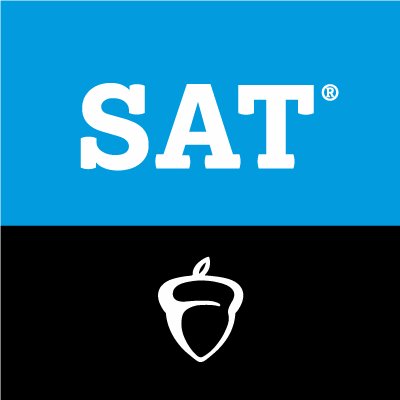On Its Last Legs
“A brief commentary on whether or not the COVID-19 virus will finally kill the SAT.”

With all of the instate (AZ) universities being ‘test-blind’ towards admission testing this year due to the COVID-19 outbreak, students all across the country are wondering whether or not, out of equity alone, the virus will finally destroy College Board’s money-making dreadnought that is the SAT test.
The SAT college admissions test is a dreaded thing, with the mere mention of its namesake sending chills down the backs of high school graduates, as well as those in their Junior and Senior years that still need to register and study for the exam.
For me personally, my SAT was cancelled my Junior year as I had it scheduled for my second semester, yet obviously the COVID-19 outbreak put an abrupt halt to my plans. Afterwards I had it scheduled for the third of October of this year at Ridge; however, it was again cancelled and then forwarded to Centennial High School.
I ended up taking the test at Centennial without studying whatsoever as the news came pretty quickly that in-state colleges wouldn’t require the test out of fairness; even so, the test with the essay was a grueling five hour experience that I’ll never wish on anyone else.
It was about as bad as you can imagine, with rigid seating arrangements and the troubles that came with sitting for five hours while having to breathe rapidly through a mask. I mean, the back-board of my chair was broken (because of course it was,) which allowed me to lean back during the break time, this serving as my only respite.
I’m pretty sure that I (probably legally) can’t criticize the contents of the test, so instead I’ll just summarize the previous pieces of students writing for The Ridge Review that so furiously pecked away at their keyboards, crafting drawn out hate-papers against the SAT and College Board, by saying that the test wasn’t fun, and it felt like a waste of time and ninety dollars.
People have been critical of the test’s use since its conception and oftentimes it’s considered to be the College Board’s ‘cash cow’ alongside their expensive Advanced Placement (AP) tests. It seems as though, at least based on the opinion of the many, that the test might finally meet its end.
The ACT is offered for free to students here at Mountain Ridge, and college admissions testing in general has never been well-regarded by students and parents alike. In order to keep things equal in the future specifically, when comparing future classes and the class of ‘21 and potentially ‘22 it seems only fair that the SAT be dropped as a requirement for college admissions (note: not all colleges require an admissions test such as ASU,) even if it causes financial problems for The College Board.
Alongside actually being admitted to the college, SAT scoring can heavily sway financial aid opportunities in college regarding scholarships, an example being the New American University Scholarship offered by ASU (said scholarship also being blind towards testing this year).
Maybe the equity among students will be ignored and the SAT will go on for generations just as it was, or perhaps the monstrous test will finally be killed for good and students won’t have to put aside copious amounts of both time and money towards it. Even if the test is killed, it may come back in another form in the future, more powerful than ever.
I personally couldn’t say what’ll happen to the test, as while most (including myself) would probably agree that it’s time for the old ‘cash-cow’ to die and move onto more progressive methods for students to follow in order to get into college, others would say that the test is necessary and important for the longevity of The College Board. Schools across the country such as some in California are already pushing for the test to die off completely, so we’ll have to see what happens here in Arizona.
At the same time, who’s to say that it’s not also unfair for future students to not have to take the test? Many past students were forced to in order to get into the college of their choice or receive the financial aid they needed in order to not suffer the burden of loans and financial instability, and so it could be argued that future students should go through the same process that they did, as opposed to referring the precedent set by the class of ‘21 as of now.
No matter what, it’s important that a decision is made by the end of this school year as it would surely be a pain for the class of ‘22 to be in a constant state of confusion regarding their opportunities for college.
Who knows, maybe all of the confusion will start pushing more people towards trade schools.

Aden Schulze-Miller is a senior and it's his third year working for The Ridge Review; he's our Editor in Chief. He enjoys watching movies, writing short stories, and is ready to help foster a...






